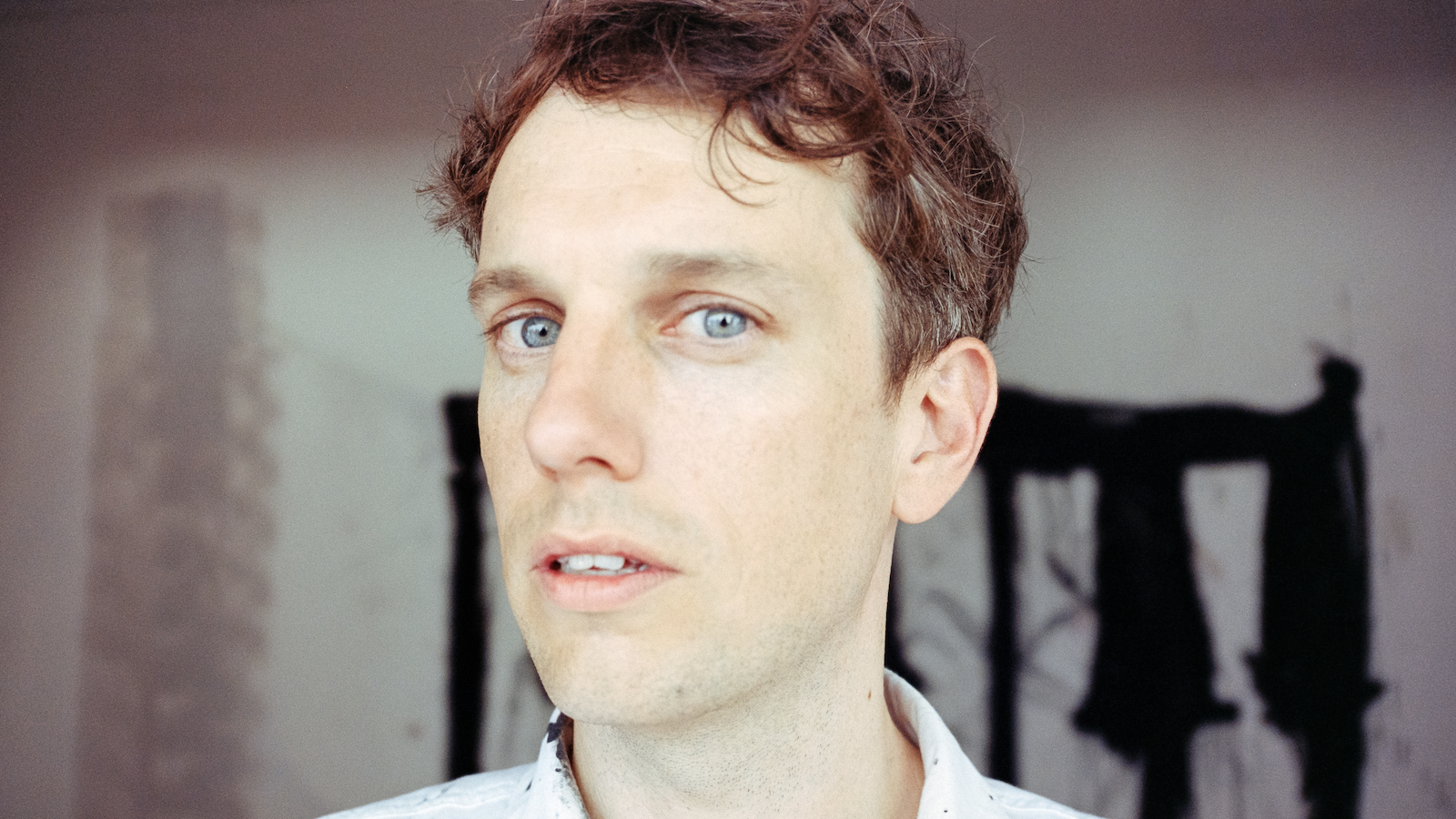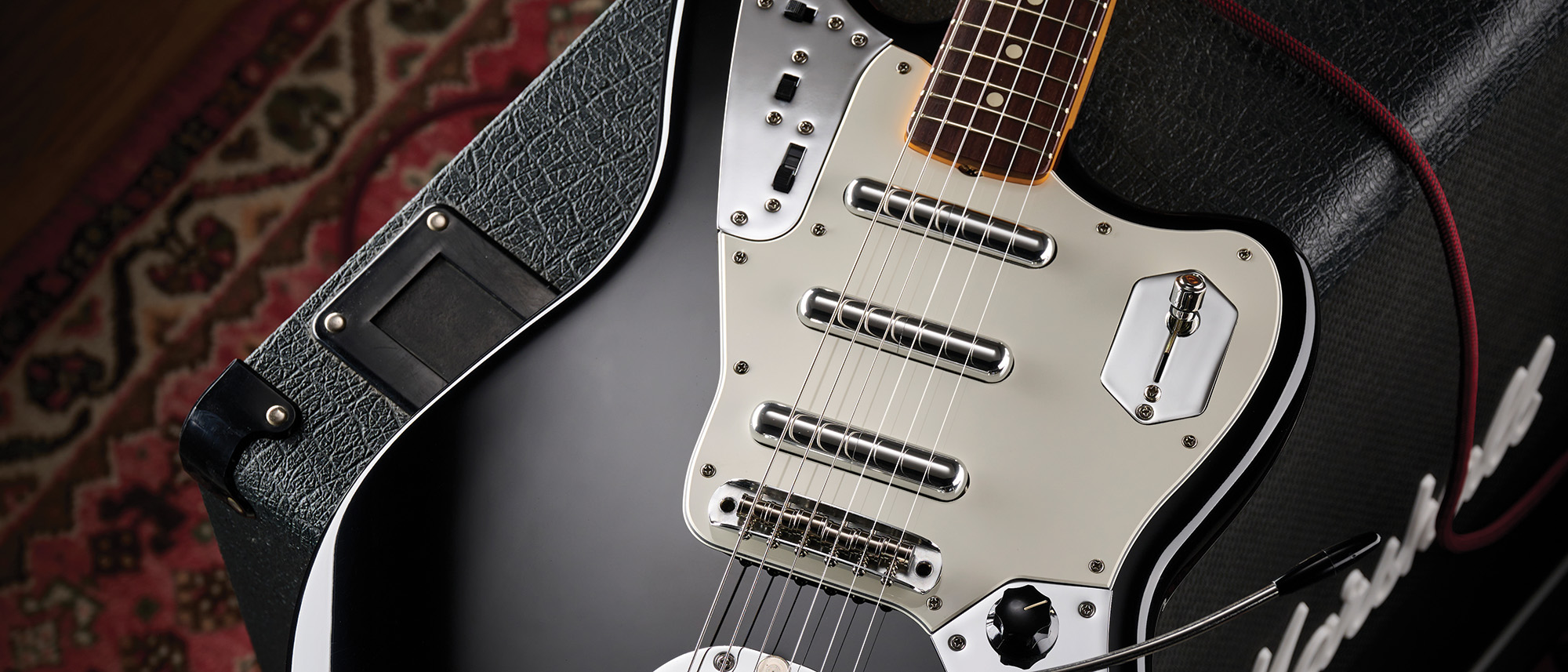Jake Webb, aka Methyl Ethel: “I try not to think about what the project has grown to represent”
Methyl Ethel isn’t like most guitarists. So, naturally, his new album isn’t like most guitar albums.... It’s better

All the latest guitar news, interviews, lessons, reviews, deals and more, direct to your inbox!
You are now subscribed
Your newsletter sign-up was successful
Teetering past the magic third album, Methyl Ethel – the nom de plume of multi‑instrumentalist Jake Webb – will drop a fourth next month. Where its predecessors were turned around quickly, Are You Haunted? sees Webb pull back and take a fine-tooth comb to the release. There’s not an air of perfectionism about him when he chats with Australian Guitar, though – rather, Webb was careful to cultivate a particular sound: one, he says, which could only come about once he endeavoured to employ a new creative process.
An intricate and delicate approach to Are You Haunted? wasn’t restricted to Webb’s songwriting; it manifested in the execution and indeed, his perception of his craft. Webb views his guitars as his tools, not instruments, and used them to create a wealth of the kaleidoscopic indie-rock nuances explored on Are You Haunted? The unique choice of tools meant Webb was able to come up with a plethora of tones for this release, from rich and dark, rounded and robust, to… Well, flat and dead, as he puts it – that particular sound achieved with a guitar equipped with just four strings.
This perspective and unconventional method, though, sees Webb become far more meticulous than he’s ever been. Rewriting melodies, adjusting tempos, shaking up rhythms, adopting synthesisers to enhance the guitar’s textures… Webb has truly done it all, and in doing so, taken himself on a brand new journey through music.
Did the uncertainty of touring over the past couple of years have an impact on how you approached this album?
Not at all. I don’t even have the live show yet. It’s all kind of unconsciously visual, the way that I make the music. It serves its own purpose. It’s all unto itself – all of the bits and pieces to unlock are all woven into the fabric of the record, y’know, from the album title and the track names, the lyrics, the through-line of it all, the way things flow… It’s its own experience. The live show can sometimes feel like a necessity. But the live show always has the potential to have as much value as the record. I just don’t ever feel like I have enough time or resources. Y’know, it’s hard to put together all the bits and pieces when there are so many moving parts; but making the music is something that I can do very easily and economically.
So going from Triage into this weird and wonderful new era, how did you want to push the Methyl Ethel project forward, or build upon what you’d already established creatively with the first three records?
I guess for starters, I try not to think about what the project has grown to represent to anybody else. I always enjoy making music, but the sort of record that I’m going to make doesn’t really evolve until a certain point. And making this one was interesting. There are certain things I was interested in, but this time, I really just wanted to spend a lot of time making sure everything was just the way it needed to be.
I turned around the other albums really quickly, but this time around, it was more of an exploration inwards, into the songs themselves, to see what they wanted to become. And yeah, I rewrote these songs so many times – there are whole lyric sheets for all of the songs that changed. Keys changed, tempos changed – everything changed until it all felt right. And in the end, although there are technical things where I’m still like “Ooh, I didn’t quite get it,” these songs are as close to perfect as I could make them, without wanting to overcook them.
You have to step back at some point, otherwise a record will never be done.
Yeah, and I’m not a perfectionist at all. I just want the songs to sound a certain way, or exist in a certain realm.
All the latest guitar news, interviews, lessons, reviews, deals and more, direct to your inbox!
I’ve always loved the way you incorporate the guitar into your music, because it feels like you are just constantly finding new ways to explore and experiment with the instrument in non-traditional ways. How do you see yourself thinking outside the box as a guitarist?
There are a few technical things. I find that the guitar can be really expressive. And especially because I’ve been playing it for so long, I’ve just found my own ways to play it. In the studio, it becomes more of a tool than an instrument. I can go really deep and show you all the things I used on the album, if you want – I’ve got all the guitars right here!
Sure!
Okay, so I have essentially three electric guitars that I use. There’s this old guitar, a little Japanese [Fender] Jaguar, and I keep it now just with four strings on it. It has a really dead, shitty, kind of like West African pop guitar sound. But I keep four strings on it, and it’s always tuned to something wacky so that I don’t go where I think I’m going go. Then there’s this Rickenbacker, and I always have flat-wound jazz strings on it so that it’s always super dark. I always play with my fingers on this guitar, too, to give it a bit more of a rounded kind of sound. It’s a good one to double the bass with, up the octave.
With this album, more than ever before, I wanted my guitar to actually sound like an electric guitar. So apart from those little technical things like playing flat-wound strings or tuning it weirdly, I’ll play it through a synthesiser and pump the sounds out through the room to get a lot of those Heroes, Robert Fripp sort of guitar sounds. The guitar is a really textural thing for me.
I think a more blasé artist might just use a sample or a synth to get the sounds you get with a guitar. Is it gratifying to use an analogue instrument to make those digital sounds?
Yeah. I mean, being able to record my own music in my own space, moreso than ever before, is what’s fun about it. I think even the time spent plugging the guitar in and finding all of those tones, that’s time spent thinking about what I’m going to do with it. And you’re right, it’s so easy to just grab bits and pieces, and resample everything. I do a lot of that, and I love all of that, but so often I’ll spend all day tracking a guitar part, and it won’t make it onto the song itself, but by the end of the day, you realise where the song needs to go because of that.
